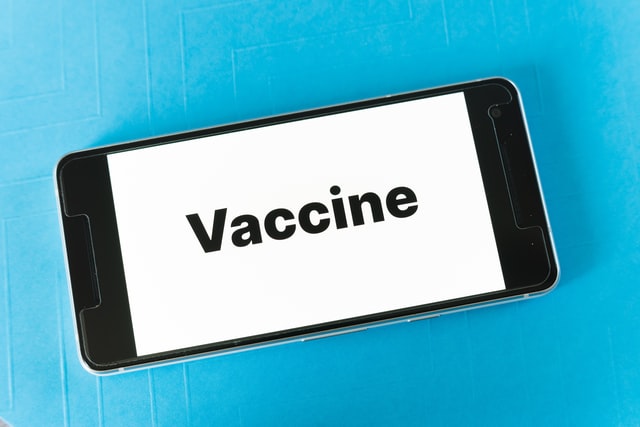Photo by Markus Winkler on Unsplash
The vaccine disinformation crisis underlines how the government’s COVID-19 communication response has fallen woefully short.
On Friday, 18 June 2021, we marked three months into the national COVID-19 vaccination drive, and there’s something we have to admit at this point – Namibian health authorities’ communication around the COVID-19 vaccines has not been up to scratch. And that’s being generous.
To date the official response from health authorities to the information pollution that has flooded social media spaces has been characterised by a lack of transparency, apparent incoherence and poor communication.
No wonder there’s so much belief in lies and conspiracies about vaccines out there among the general public.
No wonder so many people continue to ask questions about vaccines that should have been answered long before now.
No wonder there is so much expressed hesitancy and skepticism out there about vaccines.
No wonder that a recent Afrobarometer survey found that almost two-thirds of Namibian respondents had more faith in prayer than medical science (vaccines) to vanquish COVID-19.
No wonder the Namibia Nurses Union (NANU), representing the most frontline of frontline workers, stated more than a month into the vaccination drive that most nurses were skeptical of the COVID-19 vaccines and were refusing to be vaccinated.
And no wonder that doctors continue to give confusing advice and some are even now spreading falsehoods about vaccines and unproven, potentially dangerous, treatments.
With Namibia in the grips of a devastating ‘third wave’, what we should have had by now is clear communication and accessible, pervasively distributed information about the COVID-19 vaccines.
This is what the World Health Organisation (WHO) was calling for in an 11 June 2021 statement to the world’s healthcare workers, when it stated: “Clear and consistent communication is essential to support people in making the choice to be vaccinated.”
In the case of Namibian doctors and nurses, it is clear that there wasn’t a comprehensive health sector focused communication campaign to bring healthcare workers, in both the public and private sectors, on-side with the Namibian government’s efforts to respond informationally to the health crisis and to communicate the facts from the same page about COVID-19 and the vaccines.
And it’s not as if Namibian health authorities didn’t have enough time to prepare a comprehensive and coherent communication strategy and information package around the COVID-19 vaccines in the run-up to 18 March 2021, when the vaccination campaign was officially launched.
For, in early October 2020, in a recorded discussion about vaccines, the health ministry executive director, Ben Nangombe, and the ministerial team heading up the ministry’s COVID-19 response, indicated that they were working on a communication strategy and campaign around the vaccines.
THAT WAS OVER EIGHT MONTHS AGO. And six months before the national vaccination drive started. What happened to this communication strategy and campaign? Why was it never rolled out?
Now health authorities want to resort to threatening people – people who have now been exposed to a year-and-a-half of COVID-19 and vaccine related falsehoods, lies and conspiracy theories – when it had ample time to flood the information space with messages that would now have helped to counteract the tide of lies that is sweeping through most people’s social media feeds and WhatsApp groups.
Not to blow our own horn, but they were warned.
In a briefing paper published in July last year – nearly a year ago now – we recommended that:
“Namibian health authorities need to establish crisis or emergency communication measures and mechanisms to proactively, appropriately, accessibly and continuously communicate, both offline and online, the facts, developments and other critical health-related information during times of public health crises, such as the COVID-19 pandemic emergency.
Similarly, relevant Namibian government authorities, such as the Ministry of Information and Communication Technology (MICT), in collaboration with public health authorities and state media, also need to put in place effective crisis or emergency communication mechanisms and strategies to proactively pre-empt and counteract disinformation.”
This has of course not happened in any sort of meaningful or coherent way.
So, look around … what we’re seeing is the real world impact of largely unchallenged and un-countered lies and falsehoods.
This is the ‘disinfodemic’.
This really ought to have been handled better.

